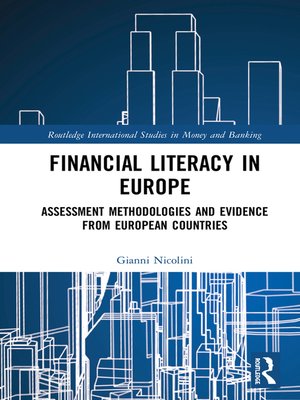Financial Literacy in Europe
ebook ∣ Assessment Methodologies and Evidence from European Countries · Routledge International Studies in Money and Banking
By Gianni Nicolini

Sign up to save your library
With an OverDrive account, you can save your favorite libraries for at-a-glance information about availability. Find out more about OverDrive accounts.
Find this title in Libby, the library reading app by OverDrive.



Search for a digital library with this title
Title found at these libraries:
| Library Name | Distance |
|---|---|
| Loading... |
Are people ready to take pivotal financial decisions like choosing a mortgage, saving for retirement, or investing their savings? How does the degree of knowledge about financial products and services affect the quality of their choices? Can financial fraud be prevented by increasing consumer financial knowledge?
Financial Literacy in Europe addresses these important questions and more. In the first part, the author investigates the concept of financial literacy by analyzing its components and comparing different definitions from previous studies. This then forms a comprehensive measure of financial literacy to be applied in empirical studies that analyze the role of financial literacy in explaining consumers' financial behaviors. In the second part of the study, the author uses brand new data collected by the Consumer Finance Research Center (CFRC) from several European countries (the UK, Germany, France, Italy, Sweden, and Spain) to assess financial literacy in Europe and highlight similarities and differences across countries.
Filling an important gap in previous research, the author develops a rigorous approach in the measurement of financial literacy in order to examine European financial literacy issues in great detail. This book, therefore, is a useful resource for assessing the effectiveness of single financial education programs or planning national strategies on financial education. It can also support policy makers in developing financial regulation and consumer protection strategies, considering the consumer perspective and their ability to deal with financial markets and institutions.







